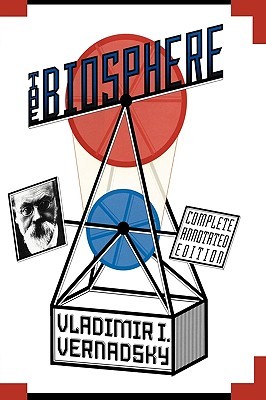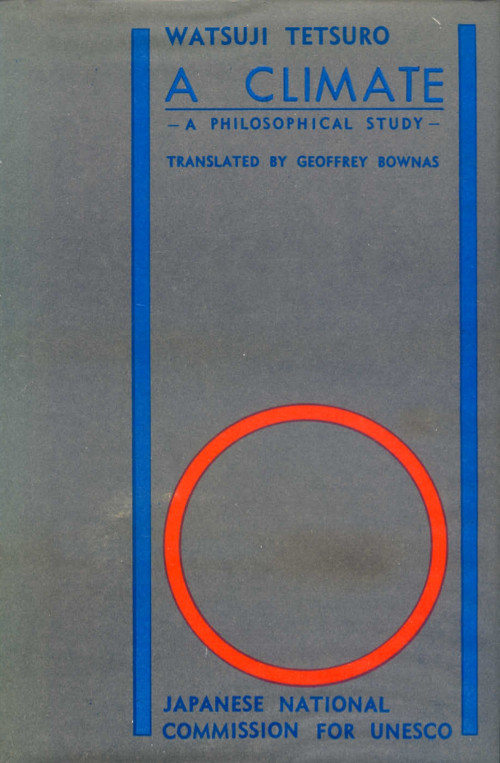Vladimir Vernadsky: The Biosphere (1926–) [RU, ES, EN]
Filed under book | Tags: · animal, atmosphere, biochemistry, biology, biosphere, chemistry, climate, earth, energy, environment, geochemistry, geology, land, life, light, ocean, plants, science, space, sun, time, water, weather

“First published in 1926 but long neglected in the West, Vladimir I. Vernadsky’s The Biosphere revolutionized our view of Earth. Vernadsky teaches us that life has been the transforming geological force on our planet. He illuminates the difference between an inanimate, mineralogical view of Earth’s history, and an endlessly dynamic picture of Earth as the domain and product of living matter to a degree still poorly understood.
The 1998 edition, which is the first English translation of the entire text, features contributions by Mark A. S. McMenamin, Professor of Geology at Mount Holyoke College, who has written extensive annotations to explain the structure of Vernadsky’s arguments and their modern relevance, and Jacques Grinevald, an authority on the idea of the biosphere, who penned an introduction that places the book in historical context.”
English edition
Foreword by Lynn Margulis, Mauro Ceruti, Stjepko Golubic, Ricardo Guerrero, Nubuo Ikeda, Natsuki Ikezawa, Wolfgang E. Krumbein, Andrei Lapo, Antonio Lazcano, David Suzuki, Crispin Tickell, Malcolm Walter, Peter Westbroek
Introduction by Jacques Grinevald
Translated by David B. Langmuir
Revised and Annotated by Mark A.S. McMenamin
Publisher Copernicus Books, 1998
A Peter N. Nevraumont book
ISBN 9781461272649
192 pages
Commentary on the concept (Alexej M. Ghilarov, The Quarterly Review of Biology, 1995)
Commentary on the translations (Mercè Piqueras, International Microbiology, 1998)
Publisher (EN)
Biosfera i noosfera (Russian, 1926/1989)
La Biosfera (Spanish, trans. María Victoria López Paño and Luis Gutiérrez Andrés, 1997)
The Biosphere (English, trans. David B. Langmuir, 1998)
Tetsurō Watsuji: A Climate: A Philosophical Study (1935/1961)
Filed under book | Tags: · buddhism, climate, culture, ecology, environment, nature, philosophy, self, space

“In 1927 the Japanese philosopher and cultural and intellectual historian Tetsurō Watsuji went to Germany and returned the next year much influenced by the philosophy of Martin Heidegger. Watsuji could not agree with Heidegger’s theories about human existence, so he wrote a book named Fūdo, published in English as A Climate: A Philosophical Study (reprinted as Climate and Culture: A Philosophical Study). Watsuji explained Fūdo as ‘the natural environment of a given land’. Watsuji thought that Heidegger placed too much influence on the individual and overlooked the importance of social and geographical factors that affect the individual.
Heidegger’s emphasis on the individual was an outcome of centuries of European thought. Descartes said, ‘cogito, ergo sum’, (I think, therefore I am). Watsuji, however, saw the human being as a product of a ‘climate’ including not only natural surroundings but also the social environment of family, society and history. For example, Watsuji explains that ‘cold’ is not a specific temperature, but also the sensation of ‘cold’ which we actually experience in our daily lives. In other words, is the feeling of ‘cold’ a subjective, conscious feeling? Or does the feeling of ‘cold’ come from the independent existence of ‘cold’? Watsuji says that neither is a satisfactory answer because both explanations make a distinction between subject and object, or human and nature. A human being recognizes coldness before any division is made between ‘subjective’ and ‘objective’. For Watsuji, the relationship between a human and his environment, called aidagara, already exists before any other concepts are understood. This idea is similar to the “pure experience” of Nishida Kitaro.
Watsuji’s philosophical uniqueness is the explanation of human existence, aidagara, in terms of social and geographical phenomena. French scholar Augustin Berque was influenced by Watsuji’s way of thought and understood that Watsuji does not regard nature and nature-human as dual existences. Berque suggests the term trajet to include the subject simultaneously with object, nature with artificiality. In French the term trajet usually means distance of travel, or route. Berque sought to change the fixed meaning of subject and object, nature and culture, individual and society, to include the possibility of inter-changeable relationships.” (from New World Encyclopedia)
The book was reprinted under the title Climate and Culture: A Philosophical Study by Greenwood Press, 1961.
Originally published as Fūdo (風土 人間学的考察), 1935
Translated by Geoffrey Bownas
Publisher Printing Bureau, Japanese Government, 1961
235 pages
via golittlebook
Watsuji at Stanford Encyclopedia of Philosophy
Comment (0)Doreen Massey: For Space (2005)
Filed under book | Tags: · architecture, city, geography, globalisation, neoliberalism, place, politics, space, time

“In this book, Doreen Massey makes an impassioned argument for revitalising our imagination of space. She takes on some well-established assumptions from philosophy, and some familiar ways of characterising the twenty-first century world, and shows how they restrain our understanding of both the challenge and the potential of space.
The way we think about space matters. It inflects our understandings of the world, our attitudes to others, our politics. It affects, for instance, the way we understand globalisation, the way we approach cities, the way we develop, and practice, a sense of place. If time is the dimension of change then space is the dimension of the social: the contemporaneous co-existence of others. That is its challenge, and one that has been persistently evaded. For Space pursues its argument through philosophical and theoretical engagement, and through telling personal and political reflection. Doreen Massey asks questions such as how best to characterise these so-called spatial times, how it is that implicit spatial assumptions inflect our politics, and how we might develop a responsibility for place beyond place.
This book is “for space” in that it argues for a reinvigoration of the spatiality of our implicit cosmologies. For Space is essential reading for anyone interested in space and the spatial turn in the social sciences and humanities. Serious, and sometimes irreverent, it is a compelling manifesto: for re-imagining spaces for these times and facing up to their challenge.”
Publisher Sage, 2005
ISBN 1412903610, 9781412903615
222 pages
Review: Matthew Sparke (Progress in Human Geography).
Commentary: Ben Anderson.
PDF (no OCR, updated on 2021-1-25)
Comments (2)
